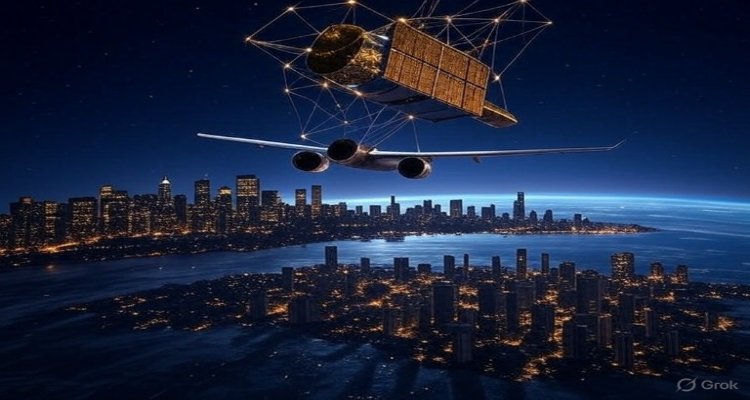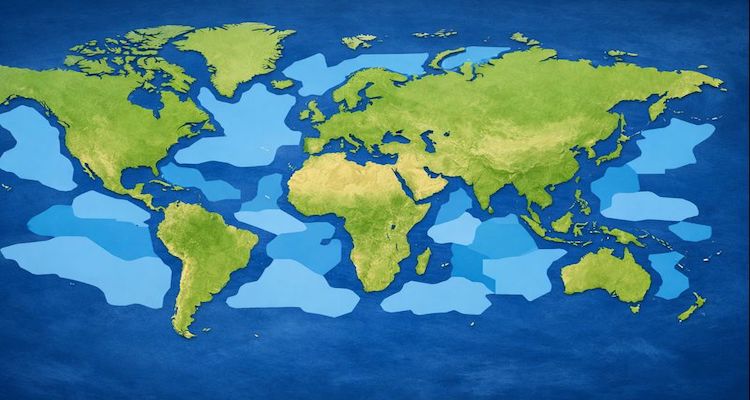The Day Satellites Go Silent: How the World Would Change Overnight

What if satellites went dark overnight? From communication blackouts to economic collapse, here’s how a silent sky would reshape modern life.
Introduction: A Silent Sky
Imagine waking up one morning to find your phone has no signal, your GPS can’t locate you, and the internet is crawling at a fraction of its normal speed. Planes circle in confusion, financial markets freeze, and emergency responders struggle to communicate. This isn’t the script of a dystopian thriller—it’s the chilling possibility of what could happen the day satellites go silent.
Context & Background: The Invisible Infrastructure Above Us
Today, more than 6,500 active satellites orbit Earth, quietly powering nearly every aspect of modern life. From weather forecasting and navigation to military defense and international banking, satellites form the invisible backbone of global infrastructure.
We rarely think about them because they work seamlessly, 24/7. But this reliance also creates a single point of failure. A massive solar storm, cyberattack, or targeted anti-satellite strike could leave Earth disconnected overnight.
History offers warnings. In 1859, the Carrington Event—a massive solar storm—disrupted telegraph systems worldwide. If such an event occurred today, experts estimate it could disable satellites and cause trillions in damages.
Main Developments: The Chain Reaction of Silence
If satellites suddenly went dark, the effects would cascade in hours:
- Communication Blackout: Phone networks, international calls, satellite TV, and much of the internet would grind to a halt. Remote regions would be cut off first.
- Navigation Failure: GPS systems used by aviation, shipping, trucking, and even everyday drivers would vanish, causing accidents and paralyzing supply chains.
- Financial Freeze: International banking, stock exchanges, and high-speed trading depend on precise satellite timing. Markets could collapse within minutes.
- Defense Blindness: Militaries worldwide rely on satellites for surveillance, coordination, and intelligence. Losing them would leave nations vulnerable.
- Climate & Disaster Risks: Without satellites, weather forecasting and natural disaster monitoring would vanish, leaving billions exposed to unseen threats.
In short, life as we know it would unravel in less than 24 hours.
Expert Insight & Public Reaction
“Satellites are the nervous system of the modern world,” says Dr. Laura Mitchell, an aerospace analyst at the Center for Space Security. “Shut them down, and you paralyze everything from airplanes in the sky to ATMs on the street.”
Public reaction, experts predict, would swing from confusion to panic. Without GPS or real-time news, misinformation would spread quickly. Economies could spiral into chaos, and governments would struggle to maintain order.
Impact & Implications: A World Rewired
A sudden satellite blackout would be more than an inconvenience—it would reshape geopolitics, economics, and human society.
- Geopolitical Instability: Rival nations might misinterpret silence as an attack, raising the risk of conflict.
- Economic Collapse: With trade and finance frozen, global supply chains would buckle, leading to shortages of food, medicine, and energy.
- Back to Basics: Navigation would revert to compasses and maps; communication would depend on shortwave radio; disaster warnings would rely on ground-based systems.
Some countries are already preparing. The U.S. and Europe are investing in resilient space systems and terrestrial backups. Meanwhile, private companies are racing to build mega-constellations like Starlink, designed to provide redundancy in case of outages.
But as space becomes more crowded and contested, the threat of disruption grows.
Conclusion: Preparing for the Unthinkable
The day satellites go silent may never come—but the possibility is real enough that governments, businesses, and individuals must prepare. Building terrestrial backups, diversifying communication systems, and protecting satellites from cyber and physical attacks are critical steps.
Humanity has built a civilization that reaches for the stars, but it is also one that could collapse without them. The question isn’t just whether satellites will fail, but whether we are ready for the silence when they do.
Disclaimer : This article explores a hypothetical scenario. While based on real science and expert analysis, the described events are speculative.










